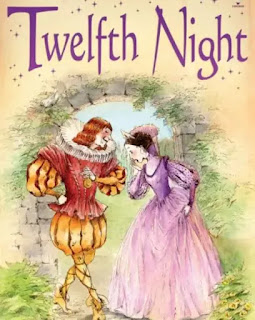Twelfth Night as Festive Comedy of Youth
Shakespeare’s ‘festive comedies’ have been identified as plays in which the form and spirit of contemporary popular holidays are evident. The characters may be enjoying festive pastimes (such as in A Midsummer Night’s Dream or Love’s Labour’s Lost), or they may, themselves, be part of a larger, festive scheme in the narrative, finding themselves, as the celebrated Shakespearean critic C.L.Barber notes, ‘in the position of festive celebrants’. Twelfth Night is a brilliant example at hand where Shakespeare juxtaposes the festive scheme with the youthful comic spirit.
Much of Shakespeare’s comedies are festive in a quite special way that distinguishes them from the art of most of his contemporaries and successors. His comedies are celebrations of life and the mood is of holidays and festivals; making the whole experience of the plays like that of a revel. C.L. Barber went on to argue that Elizabethan seasonal festivals such as May Day and Twelfth Night are the key to understanding Shakespeare’s comedies. The social forms of such Elizabethan holidays have contributed greatly to their dramatic form.
Twelfth Night may be called a festive comedy primarily because of the occasion of its composition. The play took its name from a festival, which was celebrated annually in England on the 6th January, that is, on the twelfth day from Christmas. As it was a common practice to hold stage performances of plays as part of the ceremonies and festivities relating to that particular occasion, this play was without doubt intended to be performed on the 6th January 1602 (or 1601). The play, therefore, surely embodies the genial spirit of the twelfth-night festivities and merrymaking. The boisterousness of Sir Toby and his companions, as also the songs and the romantic events in the play, well suited the general gaiety occasioned by the celebrations of the festival, which used to be held on the 6th January every year. In Act 2 Scene 3, Sir Toby tells Olivia’s steward, Malvolio, rather sarcastically, ‘Dost thou think, because thou art virtuous, there shall be no cakes and ale?” This reference to ‘cakes and ale’ also relates the play to the festive occasion of Twelfth Night.
He and Maria seem to live nothing but for fun, and for making fun of fools. Sir Andrew Aguecheek and Malvolio both made a mountain of fun. Olivia’s allowed fool’, Feste, bears a name that relates to the spirit of festivity & he proves himself to be one of the major sources of fun and mirth in the play. All four songs are sung by him at different points of the play’s action. In fact, Feste’s songs and Duke Orsino’s love for music contribute to the festive character of the play in a big way.
Indeed, the play goes trippingly from the beginning to the end. When it touches sadness, it is not sad seriously. The sadness of the Duke is joy in the garb of mourning; it is only a fresh way of enjoying life. Viola is not sad either. She has her own will and way completely. Even Malvolio is quite happy in his self-conceit till he is made a gull of. He is the cause of merriment to others. As to the other characters of the underplot, they are all on the top of mirth jollity and festivity.
In fine, Twelfth Night is a gay, lively festive comedy that deals with the carefree, pleasure-loving life of the fashionable youth of Illyria. It is a comedy of love, pleasures, gaieties, and disguise. The spirit of youth breathes through the play. And, by way of accommodating such elements as mischief-making, witty repartees, gulling, disguise, adventures, and exchanges of love and romance Shakespeare here aptly builds up an atmosphere of great fun and enjoyment.
